In today’s fast-paced business world, providing exceptional customer service is no longer a luxury, it’s a necessity. Customers expect immediate, personalized, and efficient interactions, and businesses are scrambling to keep up. Enter intelligent assistance – a revolutionary technology powered by artificial intelligence (AI) that is transforming the way businesses interact with their customers. AI-powered customer service software is not just a buzzword; it’s a game-changer, empowering businesses to automate tedious tasks, personalize interactions, and deliver exceptional service experiences at scale.
From automated chatbots that answer common questions to intelligent virtual assistants that can handle complex issues, AI is revolutionizing the customer service landscape. By leveraging machine learning algorithms, these tools can analyze vast amounts of data, understand customer intent, and respond in a way that feels natural and engaging. As AI continues to evolve, we can expect even more sophisticated intelligent assistance solutions to emerge, further blurring the lines between human and machine interaction.
Understanding AI-Powered Customer Service Software

In today’s fast-paced digital landscape, businesses are constantly seeking ways to enhance customer experience and improve operational efficiency. AI-powered customer service software has emerged as a transformative solution, leveraging the power of artificial intelligence to revolutionize how businesses interact with their customers.
At its core, AI-powered customer service software utilizes advanced algorithms and machine learning to automate and optimize various customer service tasks. These systems are designed to understand and respond to customer queries, providing instant support and personalized interactions. They can handle a wide range of tasks, including:
- Answering frequently asked questions (FAQs)
- Providing product recommendations
- Resolving simple issues
- Routing complex inquiries to human agents
One of the key benefits of AI-powered customer service software is its ability to provide 24/7 availability. Customers can access support anytime, anywhere, without having to wait for business hours. This enhances customer satisfaction and loyalty.
Furthermore, AI-powered systems are constantly learning and improving their responses based on customer interactions. This continuous learning process ensures that the software becomes more accurate and efficient over time, providing increasingly personalized and relevant support.
By automating routine tasks, AI-powered customer service software allows human agents to focus on more complex and strategic issues. This frees up valuable time and resources, enabling businesses to provide a higher level of personalized support to their customers.
In conclusion, AI-powered customer service software is transforming businesses by providing a more efficient, personalized, and cost-effective way to interact with customers. Its ability to automate tasks, provide 24/7 availability, and continuously learn makes it an invaluable asset for any organization looking to enhance customer experience and improve operational efficiency.
Benefits of Implementing AI in Customer Service
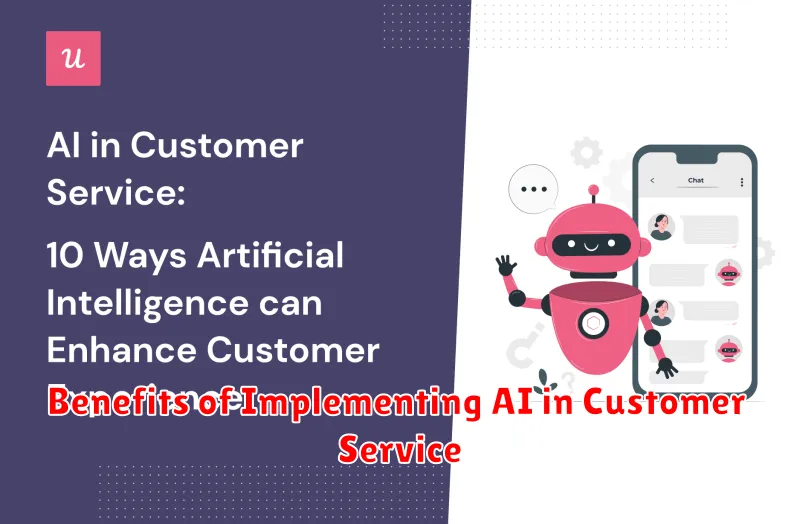
In today’s fast-paced digital world, customer expectations are constantly evolving. Businesses are looking for innovative ways to meet these expectations and enhance the customer experience. AI-powered customer service software is emerging as a game-changer, revolutionizing the way businesses interact with their customers.
Implementing AI in customer service offers numerous benefits, including:
AI chatbots can provide instant responses to customer inquiries, resolving issues quickly and efficiently. They can also personalize interactions, recommending products or services based on individual customer preferences. This leads to a more seamless and satisfying customer experience.
AI-powered software automates repetitive tasks, freeing up human agents to focus on more complex issues. This allows businesses to handle a higher volume of inquiries with fewer resources, improving overall efficiency and productivity.
By automating tasks and reducing the need for human intervention, businesses can significantly reduce their customer service costs. AI-powered software can handle a large volume of inquiries at a fraction of the cost of traditional customer service methods.
AI chatbots are available 24/7, ensuring that customers can get the help they need whenever they need it. This continuous availability leads to increased customer satisfaction and loyalty. Furthermore, by providing accurate and personalized responses, AI can help businesses build stronger relationships with their customers.
AI-powered software collects valuable data on customer interactions, providing businesses with insights into customer behavior and preferences. These insights can be used to improve products and services, enhance marketing campaigns, and optimize customer service strategies.
In conclusion, implementing AI in customer service offers significant benefits for businesses of all sizes. By enhancing the customer experience, increasing efficiency, reducing costs, and providing valuable insights, AI is transforming the way businesses interact with their customers and paving the way for a more intelligent and customer-centric future.
Enhanced Customer Experience

In today’s competitive landscape, businesses are constantly seeking ways to differentiate themselves and provide exceptional customer experiences. Enter the era of intelligent assistance, where AI-powered customer service software is revolutionizing the way businesses interact with their customers.
AI-powered customer service tools leverage the power of machine learning and natural language processing to provide personalized, efficient, and seamless support. These tools can understand customer inquiries, provide accurate and relevant responses, and even anticipate customer needs before they arise.
One of the key ways AI enhances customer experience is through 24/7 availability. Intelligent chatbots can handle customer inquiries around the clock, eliminating the need for customers to wait for business hours. This immediate accessibility fosters a sense of responsiveness and improves customer satisfaction.
Moreover, AI-powered customer service software enables proactive customer engagement. By analyzing customer data and patterns, these tools can identify potential issues or opportunities for improvement. They can then proactively reach out to customers with personalized recommendations, support, or offers.
In addition to improving efficiency and responsiveness, AI also empowers businesses to deliver highly personalized customer experiences. By analyzing customer interactions and preferences, AI-powered tools can tailor responses, recommendations, and offers to individual customer needs.
Ultimately, the rise of intelligent assistance is transforming businesses by empowering them to provide enhanced customer experiences. By leveraging the power of AI, companies can create a more personalized, efficient, and engaging customer journey, fostering loyalty and driving business growth.
24/7 Availability and Instant Support

One of the most significant benefits of AI-powered customer service software is its 24/7 availability and instant support. Unlike human agents, AI chatbots can work around the clock, responding to inquiries and resolving issues any time of day or night. This means that customers can get the help they need whenever they need it, without having to wait for business hours.
This round-the-clock availability is particularly valuable for businesses that operate in global markets or have customers in different time zones. It ensures that all customers have access to support, regardless of their location or the time of day. Additionally, instant support reduces wait times and eliminates the frustration of being put on hold or having to leave a message.
AI chatbots can also provide support for a wide range of issues, from simple inquiries to more complex problems. This means that businesses can reduce their reliance on human agents for routine tasks, freeing up their time to focus on more complex issues and customer relationship building.
Personalized Interactions

One of the most significant impacts of AI-powered customer service software is its ability to foster personalized interactions. By leveraging vast amounts of data on customer behavior, preferences, and past interactions, AI chatbots and virtual assistants can tailor responses and recommendations to each individual, creating a more engaging and relevant experience.
Imagine a customer contacting a company website with a question about a specific product. An AI-powered chatbot can access their purchase history, browsing behavior, and even their social media interactions to understand their needs and offer tailored assistance. This personalized approach not only provides a more efficient solution but also builds stronger customer relationships by demonstrating understanding and attentiveness.
Moreover, AI-powered customer service software can go beyond basic interactions. By analyzing customer data, it can anticipate needs and proactively offer relevant solutions. For instance, a customer who frequently purchases a particular product might receive personalized recommendations for similar items or exclusive discounts, creating a sense of value and loyalty.
By embracing personalized interactions, businesses can create a more engaging and impactful customer experience. AI-powered customer service software empowers businesses to move beyond generic responses and deliver truly tailored assistance, leading to increased customer satisfaction, loyalty, and ultimately, business growth.
Increased Efficiency and Productivity
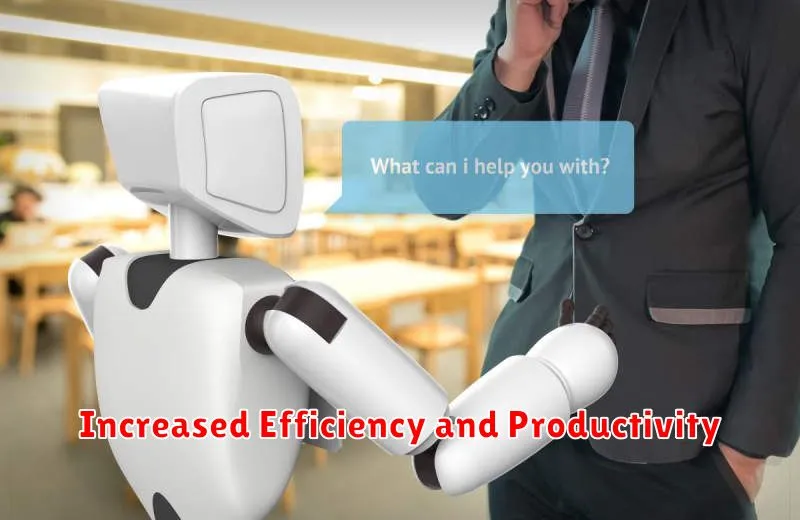
AI-powered customer service software is revolutionizing the way businesses operate, bringing about a significant increase in efficiency and productivity. By automating repetitive tasks, these intelligent assistants free up human agents to focus on more complex and demanding issues. This leads to a faster resolution time for customer inquiries, as AI can handle a higher volume of requests simultaneously.
Moreover, AI-powered software can analyze vast amounts of data to identify patterns and trends, providing valuable insights that can improve business processes. This data-driven approach allows businesses to optimize workflows, personalize customer interactions, and proactively address potential issues.
The ability of AI to learn and adapt over time further enhances efficiency and productivity. As the software interacts with customers and gathers data, it continuously improves its understanding of customer needs and preferences, ultimately providing more accurate and relevant solutions.
The benefits of AI-powered customer service software extend beyond individual departments. By streamlining processes and optimizing resource allocation, businesses can achieve greater overall efficiency and productivity, leading to improved customer satisfaction and increased profitability.
Data-Driven Insights for Improvement
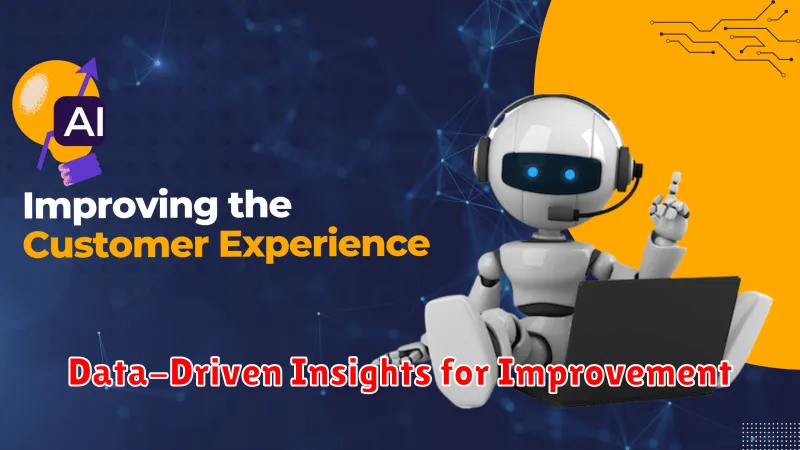
One of the most compelling aspects of AI-powered customer service software is its ability to provide data-driven insights for improvement. Unlike traditional customer service methods, which often rely on anecdotal feedback, AI systems can analyze vast amounts of data to identify patterns, trends, and areas for optimization. This data can be used to improve various aspects of customer service, such as:
- Customer Journey Optimization: AI can analyze customer interactions to identify pain points and bottlenecks in the customer journey. This information can then be used to streamline processes, reduce wait times, and improve overall customer satisfaction.
- Agent Performance Tracking: AI can monitor agent performance metrics such as response time, resolution rate, and customer satisfaction ratings. This data can be used to identify top performers, identify areas for training and development, and ensure that agents are equipped to handle customer inquiries effectively.
- Proactive Issue Resolution: AI can analyze customer data to identify potential problems before they escalate. For example, if a system detects an increase in inquiries about a specific product feature, it can alert the relevant teams to address the issue proactively. This helps to prevent customer churn and maintain high levels of satisfaction.
By leveraging data-driven insights, businesses can make informed decisions about how to improve their customer service operations. This can lead to significant improvements in customer satisfaction, reduced operational costs, and increased revenue.
Key Features of AI-Powered Customer Service Software
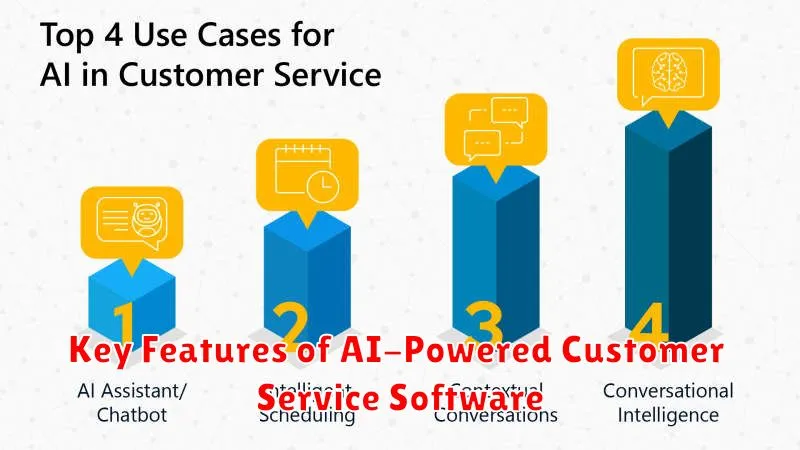
AI-powered customer service software is rapidly transforming businesses by offering innovative solutions to enhance customer experiences and optimize operations. These powerful tools leverage artificial intelligence to automate tasks, provide personalized interactions, and improve efficiency. Here are some of the key features that make AI-powered customer service software a game-changer:
1. Chatbots: AI-powered chatbots are intelligent virtual assistants that engage with customers through text-based conversations. They can answer common questions, provide product information, and even guide customers through the purchasing process. Chatbots offer 24/7 availability, reducing wait times and improving customer satisfaction.
2. Natural Language Processing (NLP): NLP empowers AI software to understand and interpret human language. This capability enables chatbots and other AI-powered tools to engage in natural, human-like conversations with customers. NLP helps in accurately identifying customer intents and providing relevant responses.
3. Machine Learning (ML): ML algorithms continuously learn from customer interactions and data. This learning process allows AI-powered software to adapt and improve its responses over time. ML helps personalize interactions, predict customer needs, and optimize service workflows.
4. Sentiment Analysis: AI can analyze customer feedback, including text and voice data, to understand customer sentiment. This feature helps businesses identify and address issues that might be causing negative emotions or dissatisfaction. Sentiment analysis provides valuable insights for improving customer experiences and resolving problems proactively.
5. Self-Service Portals: AI-powered customer service software can create self-service portals that empower customers to find answers and resolve issues independently. These portals typically include FAQs, knowledge bases, and interactive troubleshooting tools. Self-service options reduce the workload on support agents and provide customers with immediate assistance.
6. Omnichannel Integration: AI-powered solutions can seamlessly integrate with various communication channels, including websites, social media, mobile apps, and email. This allows customers to access support through their preferred channels, ensuring a consistent and convenient experience.
7. Predictive Analytics: AI can analyze customer data to predict future behaviors and needs. This allows businesses to anticipate customer inquiries and proactively provide solutions. Predictive analytics helps optimize resource allocation, improve customer retention, and drive business growth.
By leveraging these key features, AI-powered customer service software is revolutionizing how businesses interact with their customers. These innovative solutions enhance customer experiences, improve efficiency, and drive growth for organizations across industries.
Chatbots for Automated Support

In the ever-evolving landscape of customer service, businesses are continuously seeking innovative ways to enhance customer experiences and streamline operations. Enter the realm of AI-powered chatbots, a transformative technology that is revolutionizing the way businesses interact with their customers.
Chatbots are essentially computer programs designed to simulate conversation with humans. They leverage natural language processing (NLP) and machine learning (ML) algorithms to understand and respond to customer queries in a human-like manner. These intelligent assistants are capable of handling a wide range of tasks, from answering basic questions to providing personalized recommendations and resolving complex issues.
The benefits of implementing chatbots for automated support are numerous. Firstly, they offer 24/7 availability, ensuring that customers can access assistance whenever they need it, regardless of the time of day or day of the week. This round-the-clock support eliminates the frustration of waiting for a human representative and enhances customer satisfaction.
Secondly, chatbots can handle a high volume of inquiries simultaneously, reducing wait times and freeing up human agents to focus on more complex tasks. This increased efficiency leads to significant cost savings and improved overall productivity.
Moreover, chatbots can be programmed to provide personalized experiences. By collecting data on customer interactions, they can tailor responses to individual needs and preferences. This level of personalization fosters stronger customer relationships and increases loyalty.
As AI technology continues to advance, chatbots are becoming increasingly sophisticated. They are capable of learning from past interactions, adapting to new information, and providing more accurate and relevant responses. This continuous improvement ensures that chatbots remain effective and valuable assets for businesses.
In conclusion, chatbots for automated support are a game-changer for customer service. They offer 24/7 availability, increased efficiency, personalized experiences, and continuous improvement. By embracing this technology, businesses can enhance customer satisfaction, reduce operational costs, and gain a competitive edge in the digital age.
Sentiment Analysis for Understanding Customer Emotions
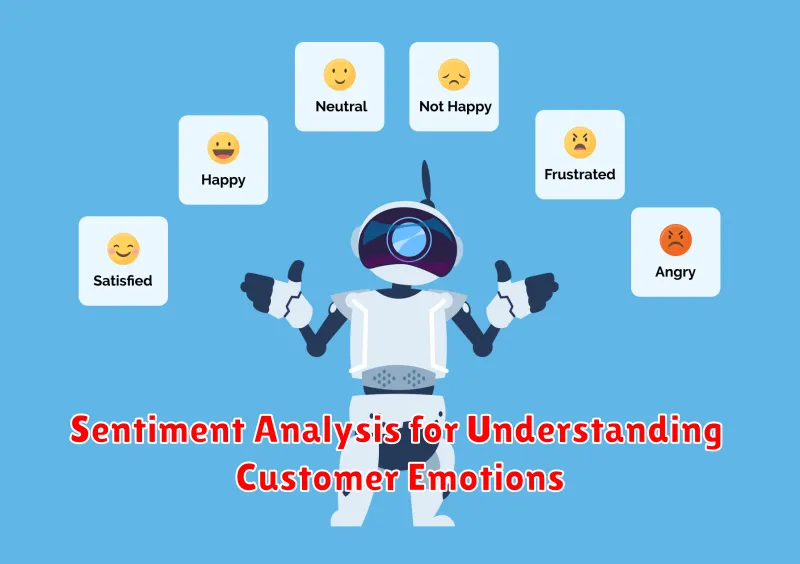
In the fast-paced world of customer service, understanding customer emotions is crucial for businesses to succeed. Sentiment analysis, a powerful AI-powered tool, allows companies to analyze customer feedback and gauge their emotional response. By analyzing textual data, such as reviews, social media posts, and chat logs, sentiment analysis algorithms can determine whether a customer is expressing positive, negative, or neutral sentiment. This invaluable insight empowers businesses to address customer concerns proactively, improve customer experiences, and ultimately boost brand loyalty.
Sentiment analysis goes beyond simply identifying positive or negative feedback. It delves into the nuances of emotions, allowing businesses to understand the specific drivers behind customer sentiment. For example, a customer might express negative sentiment due to a faulty product, while another might be frustrated by a lengthy wait time. By pinpointing the root cause of emotions, businesses can tailor their responses to address specific issues and provide personalized solutions.
The applications of sentiment analysis in customer service are wide-ranging. Businesses can use it to:
- Identify dissatisfied customers and address their concerns promptly
- Monitor brand reputation and identify potential issues before they escalate
- Personalize customer interactions by tailoring responses based on emotions
- Optimize products and services by gathering feedback and understanding customer preferences
- Improve employee training by analyzing feedback on customer interactions
By leveraging sentiment analysis, businesses can unlock a wealth of valuable insights into customer emotions. This data can be used to enhance customer experiences, improve service quality, and build stronger relationships with customers. As AI-powered customer service software continues to evolve, sentiment analysis will play a critical role in shaping the future of customer interactions, driving customer satisfaction, and transforming businesses for the better.
Natural Language Processing for Human-Like Interactions
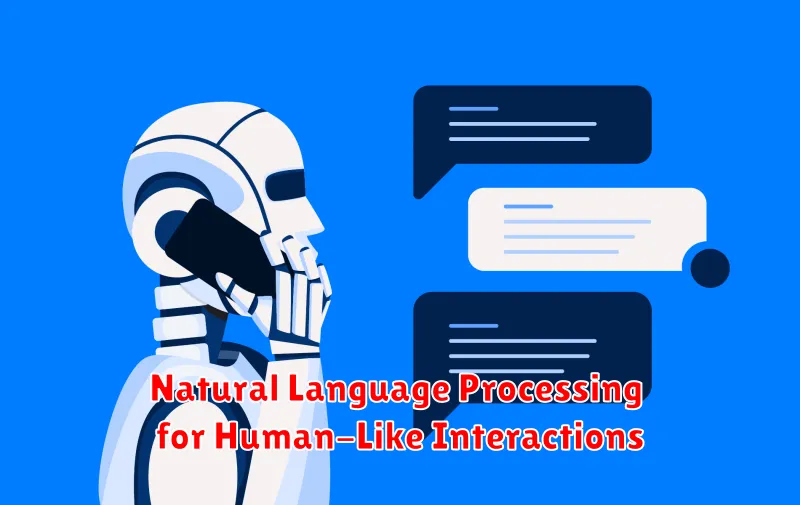
The rise of AI-powered customer service software is transforming businesses. Natural Language Processing (NLP) is a key technology enabling this revolution, making it possible for machines to understand and respond to human language in a natural and intuitive way. NLP allows software to “read” and “understand” customer queries, enabling more efficient and personalized customer service.
NLP empowers customer service software to understand the intent behind a customer’s query, not just the literal words. This allows for more accurate responses, even when customers use slang, jargon, or incomplete sentences.
NLP-powered chatbots and virtual assistants are capable of providing 24/7 support, resolving basic queries, and routing complex issues to human agents, creating a seamless and efficient customer experience.
By leveraging NLP, businesses can offer more human-like interactions, building stronger customer relationships and driving business outcomes.
Predictive Analytics for Proactive Service

In the realm of customer service, proactive assistance is the holy grail. By anticipating customer needs and addressing issues before they arise, businesses can elevate customer satisfaction, boost loyalty, and streamline operations. This is where the power of predictive analytics comes into play. AI-powered customer service software harnesses the potential of predictive analytics to analyze vast amounts of data, identifying patterns and trends that reveal potential customer issues.
Imagine a customer service chatbot that proactively alerts customers about a potential issue with their recent purchase, based on historical data. Or consider a system that anticipates a surge in inquiries before a major product launch, allowing businesses to allocate resources strategically. These are just a few examples of how predictive analytics is transforming customer service into a proactive and personalized experience.
By leveraging predictive analytics, businesses can:
- Identify at-risk customers: Pinpoint customers who are likely to experience problems, allowing for proactive outreach and support.
- Predict demand spikes: Anticipate surges in customer inquiries or orders, enabling businesses to adjust staffing and resources accordingly.
- Personalize interactions: Deliver targeted and relevant information based on customer behavior and preferences, enhancing customer engagement.
- Optimize service channels: Identify the most effective channels for customer communication based on their needs and preferences.
Predictive analytics empowers businesses to move beyond reactive customer service and embrace a proactive approach that fosters customer satisfaction, loyalty, and operational efficiency.
Integration with CRM Systems
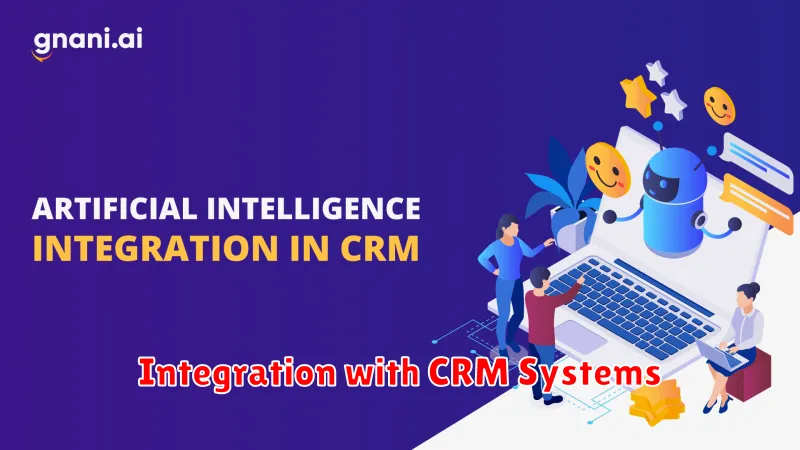
One of the most significant benefits of AI-powered customer service software is its seamless integration with existing CRM systems. This integration is crucial for businesses that rely on a comprehensive view of their customer interactions. By connecting with CRM systems, intelligent assistance tools can access a wealth of customer data, including purchase history, demographics, and past interactions.
This data allows the AI to provide personalized and contextually relevant support. For instance, if a customer calls regarding a previous order, the AI can access the order details and provide immediate assistance, eliminating the need for the customer to repeat information.
Furthermore, integration with CRM systems enables businesses to track customer interactions and analyze the effectiveness of their support strategies. This data can be used to improve customer service processes, identify areas for improvement, and personalize the customer experience. By leveraging the power of AI and CRM integration, businesses can create a more efficient, personalized, and data-driven customer service ecosystem.

